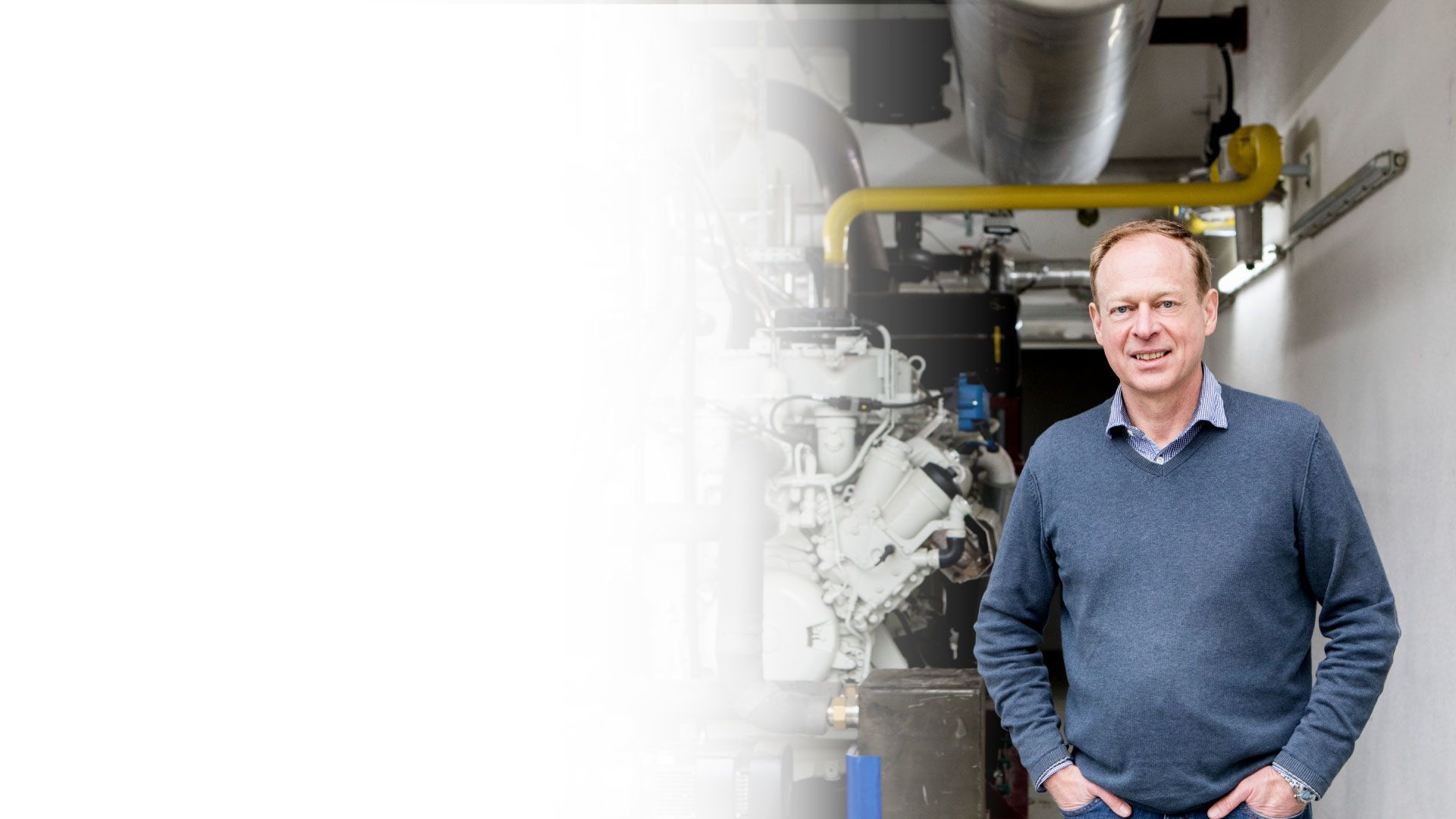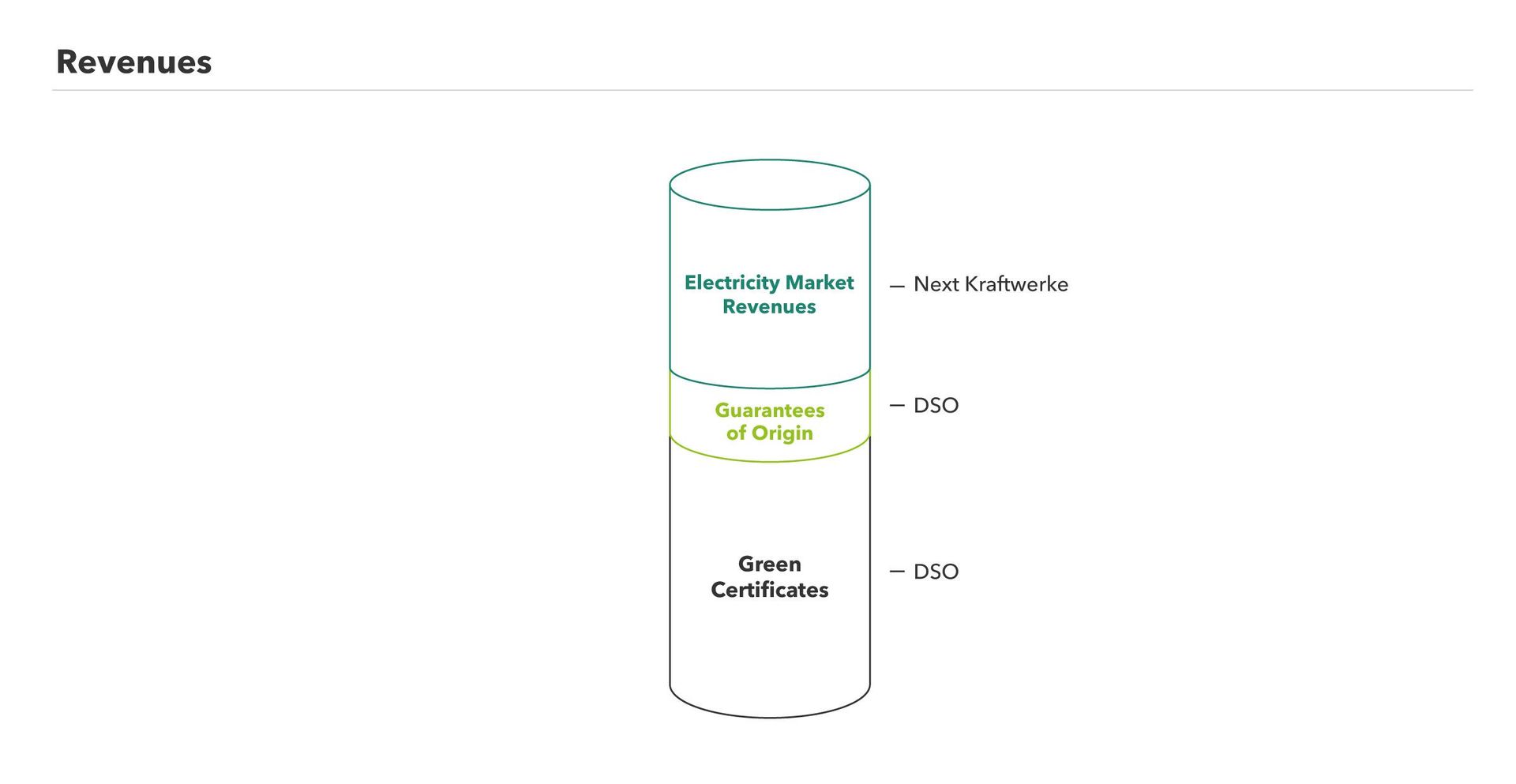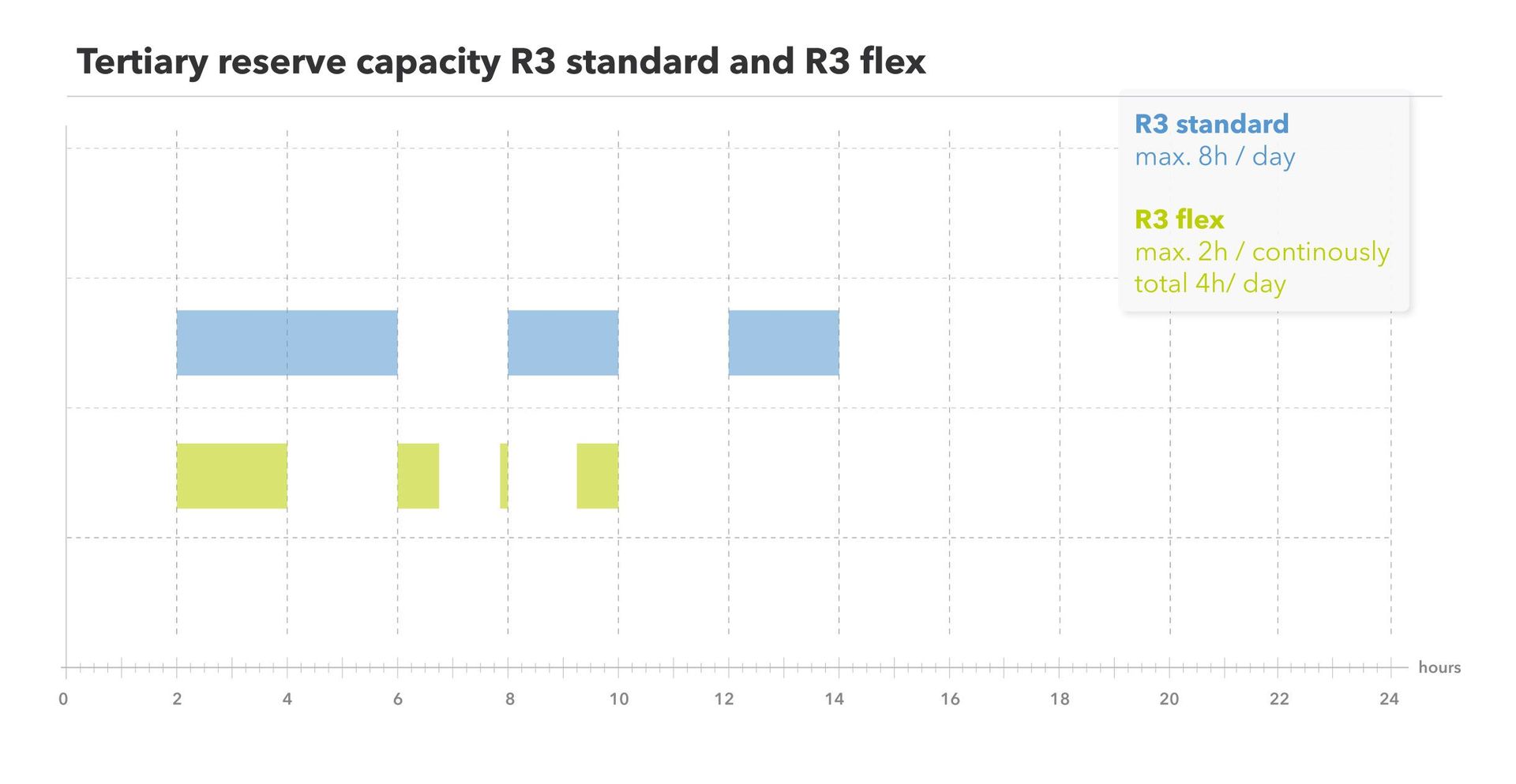
Cogeneration (CHP)
Sell electricity & reserve power in the Virtual Power Plant
Cogeneration Plants can regulate their output capacity, therefore they are particularly valuable for Virtual Power Plants. They can not only trade their electricity, but also bring positive and negative reserve power to the market. Contact our experts to find out what revenues you can generate in power trading and on the reserve power market.
Power trading
More revenues from your CHP-Plant
We connect your cogeneration plant with the Virtual Power Plant of Next Kraftwerke and give you access to the European energy markets: Simply contact us via the contact form and we will prepare a free offer based on the key data of your plant. If you are convinced of our offer, we sign a contract and integrate your CHP plant into our virtual power plant. Then we can sell your electricity on the electricity exchange and you will receive your revenues.
Direct and easy start: We connect your CHP unit with the control system of our virtual power plant via our own Next Box control interface or via the existing protocol interface of your plant. The operation of your CHP unit is not affected.
Cumulative know-how: Over 10,000 power generators and consumers are now part of our virtual power plant. This makes us one of the largest in Europe.
Profitable: You get income from the power exchange - more than you would get if you supplied a constant current. We calculate a small and transparent part of your profit for our services.

Reserve Power
Sell the flexibility of your CHP-Plant
Solar and wind power plants do not always produce the same amount of electricity. This can cause fluctuations in grid frequency, depending on weather conditions. To compensate for this fluctuation, the TSO (transmission system operators) need reserve power – a ressource which you can provide with your CHP-Plant. Because of the slow reaction of nuclear and coal-fired plants to changes in the grid your high-flexible power output is of high value to the power system.
Uncomplicated: We carry out the prequalification - the necessary test procedure for the provision of control power - for you.
Additional revenue: Already for the provision of control energy from your CHP plant, you receive the capacity fee, in the case of call, the activation fee is added.
In safe hands: To sell your CHP-generated power on the reserve power market, a connection to the Virtual Power Plant via the Next Box or the built-in protocol interface is necessary. Almost all commands executed by the Virtual Power Plant controller are automated via M2M communication. Strict safety standards are complied at any time.
Restrictions: Calls for control energy usually last only a few seconds or minutes, the heat supply is not or hardly interrupted during this time due to the heat inertia. In addition, the maximum call-up duration of your CHP plant can be limited in time by storing individual parameters in the control system of our virtual power plant.

My Power Plant
Always be up to date with our customer portal
You can view and manage the status of your plant in our online customer area My Power Plant. My Power Plant is freely accessible either via desktop computer or via Apple or Android app.
View performance values: In our customer portal, you can keep an eye on the feed-in of your CHP plant and the revenues.
Notification of malfunctions: We can inform you via app about malfunctions of your CHP plant.
Maintenance times: Register upcoming maintenance and repair times conveniently via My Power Plant so that we can take them into account in electricity trading.
FAQ CHP
Frequently asked questions
Here you will find answers to many questions concerning the marketing of your CHP plant in the virtual power plant. We will also be happy to answer your questions personally. Just get in touch with us!
We connect your CHP plant to the virtual power plant via our Next Box interface or via the protocol interface that may already be present in your plant. The system is based on a reliable and tested mobile infrastructure for data exchange. The connection is established via a VPN (Virtual Private Network) with encryption according to IEC 60870-5-104 or Modbus TCP protocols.
Your generated power is sold on international power exchanges by our team of analysts and traders. The data you have generated with your CHP unit is essential for this task. With the real-time data from every power station in our network, our team can provide reliable forecasts and analyses. We then adjust these based on our meteorologist's forecasts, so that we can sell your energy at a higher profit. This not only guarantees higher profits, but also helps to build and strengthen a flexible energy market.
The Next Box is your connection to the Virtual Power Plant. It manages the communication between your CHP-plant and our control system via a secure mobile connection that meets a legally prescribed requirement for the telecontrol capacity of a plant. The Next Box also enables you to operate your system according to a price-based scheme, which opens up additional trading opportunities.
Primary, secondary and tertiary reserves are negotiated by the Belgian TSO Elia during auctions on the control reserve markets. Market participants submit initial bids for the capacity price, which are sorted by amount in a merit list. For the secondary and tertiary reserve, successful suppliers participate in a second auction and submit bids for the unit price. If the control pool is required, the suppliers with the lowest price receive the RFx first. Higher offers follow in order. If a control reserve order is placed, secondary and tertiary reserve suppliers also receive the additional unit price. While the FCR and the RRF are subject to a weekly call for tenders, the RRFm is subject to a monthly call for tenders. In addition, Elia offers part of its FCR power on the regional market regelleistung.net.
Together with you, we analyse which reserve power market offers the highest value for your CHP installation. Important: We only ever make control energy calls within the restrictions you specify. You always retain control over your CHP plant.
Numbers & Facts
Employees
Locations
Aggregated Units
Networked Capacity
Foundation
Volume of traded energy
All services under one roof
Next Kraftwerke brings all the experts together under one roof to successfully market your CHP-Power on the power- and reserve-power markets. Our engineers, technicians and traders work closely with our sales and customer service team to ensure the best possible results for you in the electricity market.